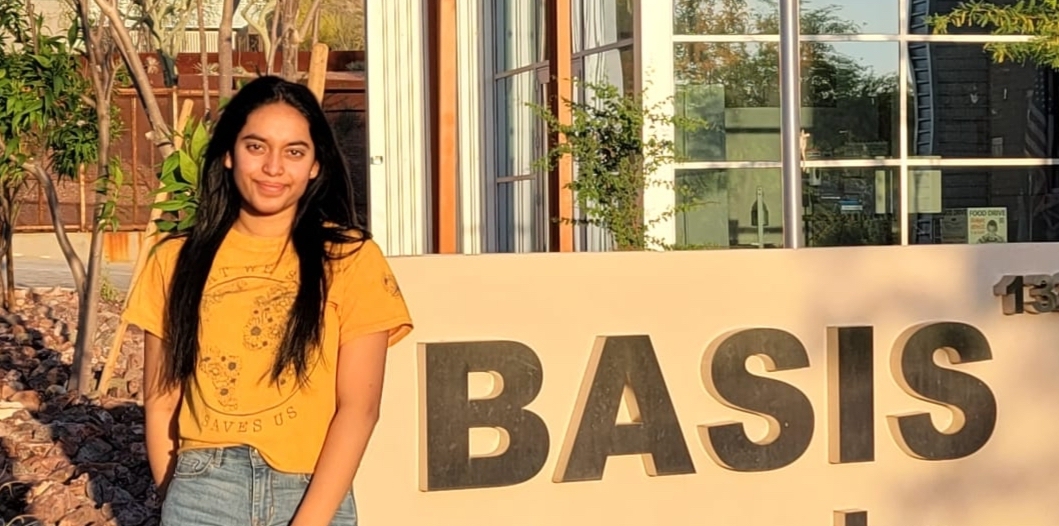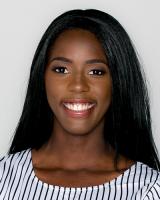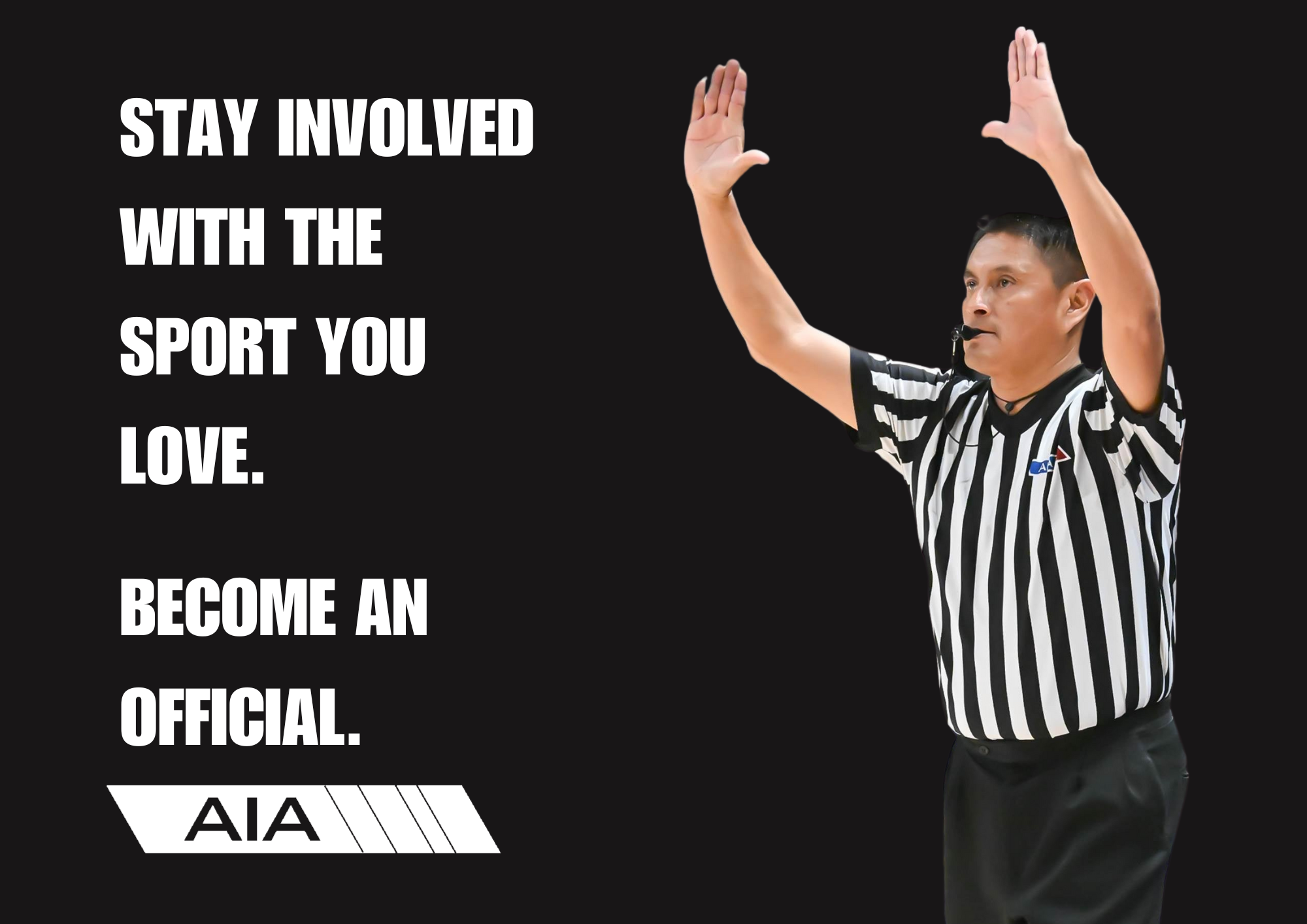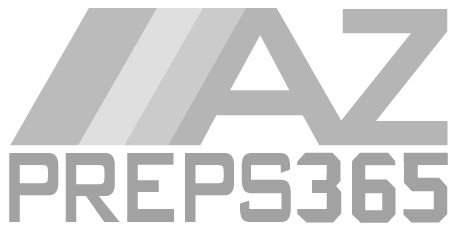Finding the right balance
May 10, 2021 by Taiwo Adeshigbin, Arizona State University

Taiwo Adeshigbin is an ASU Cronkite School of Journalism student assigned to cover BASIS Phoenix for AZPreps365.com
Founded in 2012, BASIS Phoenix is far from the typical school, considering its sports program recently joined the AIA 3A league in 2019, after playing in the Canyon Athletic Association with co-ed teams.
BASIS is a charter school with a sole focus on its academics -- but it is the extracurricular activities that have helped students find a balance in an academically challenging environment.
“ I have seen students go into other schools, possibly because they were interested in some sports, which was a priority for them, said Manisha Singh, mother to Shefali Prakash. “It does have a lot of extracurriculars, but academically, it does give students quite a bit on their plate.”
Singh, an Indian immigrant who came to the U.S. 15 years ago, said she felt BASIS was comparable to the toughness of the international schooling standards.
With two children who attend BASIS, Singh knew if Prakash started at BASIS in the fifth grade, it would help her realize if it was a good fit for her daughter.
Head of school John Hillis added that in the BASIS program ‘everything is faster and deeper.’
“ It is not just science,” he said. “Kids are taking Latin in fifth grade, and we've been doing that since we started back in the late 1990s.”
BASIS has 22 locations in Phoenix and is in four states -- Arizona, Louisiana, Texas and Washington.
Hillis said BASIS, being a liberal arts school, has kids taking more courses in language and history than in math and science.
Prakash, a senior who has a pile of offers from many Ivy League schools-- Harvard, Princeton, Yale, and Massachusetts Institute of Technology-- is fluent in English, Hindi, and Spanish.
Starting at BASIS in the fifth grade, Prakash was initially intimidated because of what she heard about the academic toughness. But those fears were hushed after meeting her classmates, attending orientation, and the support from her teachers.
As she transitioned to seventh and eighth grade, Prakash had some challenges with time management, but after meetings with her teachers, she learned better ways to study.
Prakash loves learning, but it’s the extracurricular activities that have helped her stay afloat in between all the studying. She is involved in the Spanish Honor Society, the Science National Honor Society, debate team, and even created a club – the Peer Advocate crew, to help spread kindness and positivity.
BASIS coach Jules Veloria, who also has two kids at BASIS, added that kids need to have the right balance.
"It’s synergistic to have sports to academics. They need to be told to take a break from their studies and spend time with friends,” Veloria said.
The boys head soccer coach said kids need to enjoy the process of learning and developing. They also need to identify their learning gaps to help them accomplish certain benchmarks -- whether that is a better athlete, student, or person in life.
Singh said the school’s extracurricular activities have some fees, but the private charter school has no cost, which was a factor that led her to enroll her kids.
Sixth-grade teacher Jared Matthews teaches World History and advanced placement Geography. But before the start of teaching at BASIS, he recalled how teachers even completed an intense two-week process of learning, where they learn from the veteran teachers and handbooks on how to implement different teaching styles.
With the challenging classes, Matthews tries to ensure that students have a life outside of school.
“I assign very little homework," he said. “But when we’re here, we’re doing work and making it a fun experience.”
“I hope the kids in all of my classes enjoy something in the classroom that picks at them later in life," Matthews said.
Incorporating real-world examples in his teachings, Matthews said it helps the sixth graders see how history concepts shape the world and also helps them make that human connection.
Kelsey Cooper, who has been teaching seventh and ninth through eleventh grade honors and advanced placement physics, was drawn to BASIS because they taught the sciences -- biology, chemistry, and physics -- in sixth grade.
She said a drawback of traditional public schools is that they typically teach physics in high school, which would limit the number of students she could teach.
By teaching more students and introducing science to elementary kids, Cooper hopes to give students a science foundation so their high school years could focus on higher-order thinking skills like critical thinking and problem-solving.
In her nine years at BASIS, Cooper has witnessed the school progress in its communication and the support system for new, returning, and veteran teachers.
Although the teachers provide academic support, Cooper said each student has to be motivated to succeed in a demanding school.
“The number one predictor is the student wanting that education," she said. "It’s the student that drives it. Not the parents or the school."
“A straight 'C' student at BASIS can be just as successful and get into a college as a straight ‘A’ student," Hillis added. "You have to want to work hard."
Prakash recalled during eighth grade how she went to information sessions where BASIS helped prepare students for college. Once she was in high school, she said there were more meetings with college counselors to go over standardized testing and to learn how to prepare college applications.
When Prakash was considering colleges, she looked at colleges “that were affordable, a good culture and environment.” She also wanted to be surrounded by peers pursuing different majors who were just as motivated.
All of Prakash's hard work has certainly paid off as she has committed to Harvard to pursue her dreams of becoming an engineer.
“I think BASIS has already given her a march up ahead, given her all the tools that are necessary academically to excel,” Singh said. “If the student has enjoyed that rigor, some students thrive in a very challenging environment and they want to pursue that then it is up to the students that they continue.”
Prakash, an Arizona native, knows there will be another transition when she arrives in Massachusetts.
“The Northeast is going to be like a huge change in the weather, and I don’t think I own a jacket that’ll keep me warm,” she chuckled. "I’ll really miss the sun.”
For a student who has been taking virtual classes most of her senior year, she is ecstatic to share her last days with her school friends.
“I am excited to see everyone and just celebrate our last day together,” she said. "Just ending this chapter of high school right now is exciting to me.”


